Upon my Sam! 2020 is a little hard, isn’t it, old horse? But there’s one heartening beacon to calm my soul. I’m talking about Ukridge, laddie.

Ukridge contains ten stories about this bloke knocking out in towns named Stanley Featherstonehaugh Ukridge, told in the perspective of his Wrykinian chum, James Corcoran (Corky). Ukridge is a menace of civilisation and a garrulous stripling but he’s got all potentials to be good old Galahad Threepwood or Uncle Fred 2.0. He is paternally adored by ex-butler Bowler in the household of Corky and six Pekingese in a basket but an eyesore to the dogs’ owner cum Honorary President of Pen and Ink Club, Aunt Julia. It’s easy to hear his anecdotes being told with little surprise – pinching suits and animals, bilking one pound two and threepence for a little clockwork man…you name them. Great Scot! But your scorn could only induce an eye of disappointment from Ukridge.
Now, laddie, laddie,” said Ukridge, reprovingly, “need we strike a jarring note? Is this the moment to fling your beastly socks in an old friend’s face? A broader-minded spirit is what I would like to see.”
– Ukridge
Whimsical and opportunistic Ukridge demands you and Corky to have vision, a “big, broad, flexible outlook”. All schemes would eventually lead to, at a conservative estimate, to scoop up at least four or five thousand pounds in his purposefully lucrative businesses. Nonetheless, they are businesses not only satisfy personally but expands to all altruistic notions.
Of course, Plum would not let Ukridge clean up what he wants; and while his projects are carried out in a supposedly smooth underhanded cooperation with Corky (he gets persuaded to do it every single time), things get convoluted, and them two are always getting into unprecedented and enervating scraps. What a love-hate relationship Corky shares with Ukridge. He is only a journalistic writer! How his life gets meddled with a forger!
[…] I turned from the train with a pale, set face, and, passing down the platform of Euston Station, told a cabman to take me with all speed to Ukridge’s lodgings in Arundel Street, Leicester Square. There had never, so far as I knew, been a murder in Arundel Street, but I was strongly of opinion that that time was ripe. Cecil’s society and conversation had done much to neutralise the effects of a gentle upbringing, and I toyed almost luxuriously with the thought of supplying him with an Arundel Street Horror for his next visit to the Metropolis.
– Corky
Even though Ukridge understands the undeniable power of Fate (designated by Plum), he is still a man made of steel and stone with so much fortitude in the hour of ruin that he always gets carried away by his optimism, with what Corky sees as a cataclysmic disaster. Even though his managerial fortune is thwarted by the temperamental pugilist Battling Billson once and then twice, Ukridge still seals his faith with a loving-kindness for the third time. Even though Ukridge’s schemes are so disputable that overturns all things into a pile of hullabaloo, his charms dissociate himself from repulsion and sins. Ukridge is a cheeky legend who encompasses a life of wilderness and maddness without regrets.
It just shows, laddie,” he said, exuberantly, “that one should never despair. However black the outlook, old horse, never, never despair. That scheme of mine might or might not have worked—one cannot tell. But, instead of having to go to all the bother of subterfuge, to which I always object, here we have a nice, clean-cut solution of the thing without any trouble at all.”
– Ukridge
Some favourite quotes:
- “…No arguing or shilly-shallying. You just go and do it. It’s the spirit that wins to success. I like to see it…” (Ukridge)
- “She was wearing that blue dress when I first met her, Corky. And a hat with thingummies. It was on the Underground. I gave her my seat, and, as I hung over her, suspended by a strap, I fell in love absolutely in a flash. I give you my honest word, laddie, I fell in love with her for all eternity between Sloane Square and South Kensington stations.” (Ukridge)
- “Well, it’s not so easy to let a truck bump into you.”
“Nonsense. It only requires a little ordinary resolution. Use your imagination, man. Try to think that a child has fallen down in the street—a little golden-haired child,” said Ukridge, deeply affected. “And a dashed great cab or something comes rolling up. The kid’s mother is standing on the pavement, helpless, her hands clasped in agony. ‘Dammit,’ she cries, ‘will no one save my darling?’ ‘Yes, by George,’ you shout, ‘I will.’ And out you jump and the thing’s over in half a second. I don’t know what you’re making such a fuss about.” (Ukridge)
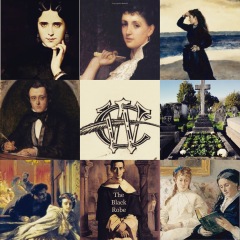


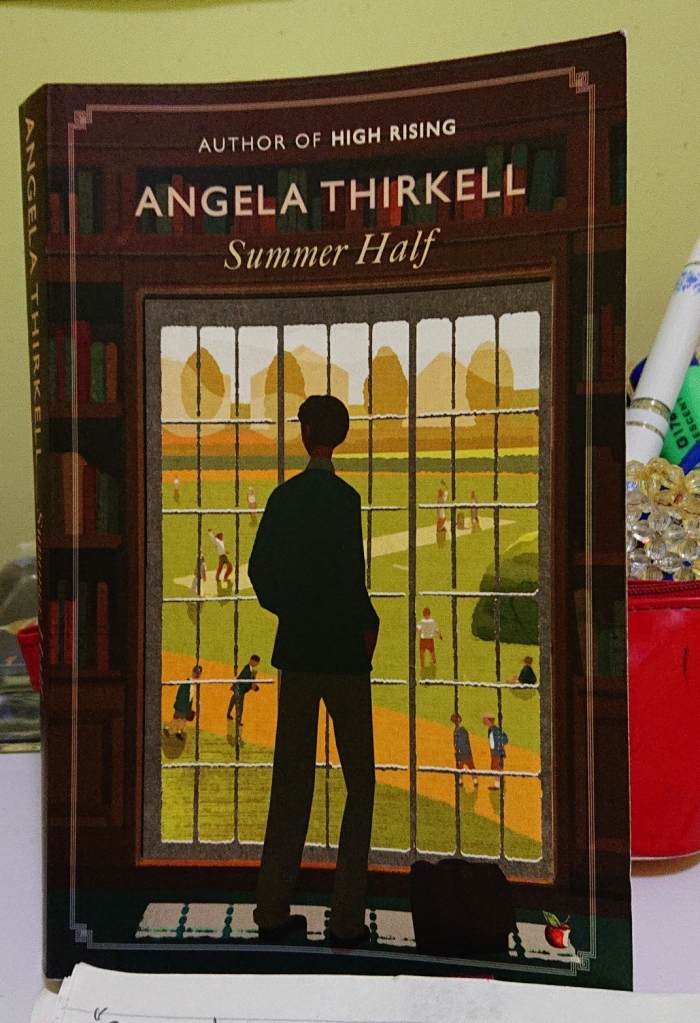
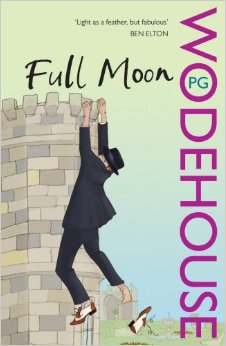 Full Moon is again another farce which deals with Fate in a convoluted yet rollicking way; but some elements of the plot set my reading experience apart from other “hoosegow” stories. Although Freddie Threepwood is still the Nature’s prune in Guv’nor’s and aunts’ sore perspectives, he is now an junior vice-president post in Donaldson’s Inc. to promote the interests of Donaldson’s dog biscuits around the reclusive country houses in England after his nuptial ties to an American tycoon’s daughter. Despite the supposedly formulaic plot that it is Uncle Gally who saves the day, Freddie’s alacrity in nosing other people’s businesses with his silver-tongued eloquence are put into good use, and it is a joyful consolation for me to view his accelerating confidence and “potential growth” in Freddie as if reading a coming-of-age novel. “It was not often that the Hon. Galahad found himself commending the shrewdness and intelligence of a nephew whom from infancy he had always looked upon as half-witted, but he did so now…” (p. 162) One day Freddie would be fruitfully reminiscing his reckless youth like Uncle Gally.
Full Moon is again another farce which deals with Fate in a convoluted yet rollicking way; but some elements of the plot set my reading experience apart from other “hoosegow” stories. Although Freddie Threepwood is still the Nature’s prune in Guv’nor’s and aunts’ sore perspectives, he is now an junior vice-president post in Donaldson’s Inc. to promote the interests of Donaldson’s dog biscuits around the reclusive country houses in England after his nuptial ties to an American tycoon’s daughter. Despite the supposedly formulaic plot that it is Uncle Gally who saves the day, Freddie’s alacrity in nosing other people’s businesses with his silver-tongued eloquence are put into good use, and it is a joyful consolation for me to view his accelerating confidence and “potential growth” in Freddie as if reading a coming-of-age novel. “It was not often that the Hon. Galahad found himself commending the shrewdness and intelligence of a nephew whom from infancy he had always looked upon as half-witted, but he did so now…” (p. 162) One day Freddie would be fruitfully reminiscing his reckless youth like Uncle Gally.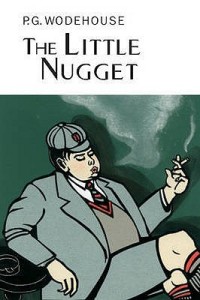

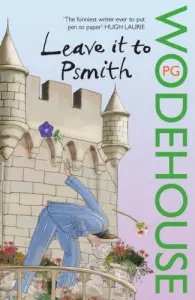


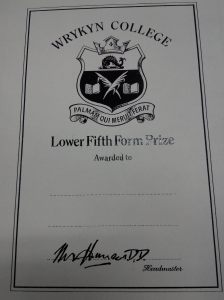




You must be logged in to post a comment.